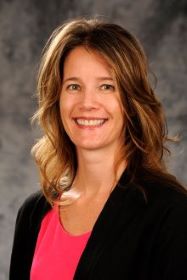Director's Letter

Health disparities are driven by complex interactions of environmental, biological, and social factors. Genetics and physiology predispose certain groups to greater harm from pollution. Meanwhile, social, demographic, and economic factors underlie the prevalence of minority- and low-income neighborhoods in close proximity to sources of pollution. The NIEHS Superfund Research Program (SRP) seeks to identify and disentangle these complexities through community-engaged research on health risks from contaminated sites.
By engaging directly with residents near contaminated sites throughout the research process, SRP-funded scientists aim to understand communities’ unique vulnerabilities and create strategies to protect their health and well-being. Together, they test soil, air, and water for contaminants and conduct biomonitoring studies to uncover high-risk areas to prioritize interventions such as education campaigns, testing exposure reduction strategies, or aiding in decision making about remediation.
SRP teams also strive to make their research understandable and usable for people from all backgrounds. To do this, they proactively disseminate findings through communication and visualization tools. By tailoring their resources according to differences in regional, cultural, educational, linguistic, and other demographic factors, SRP researchers effectively relay scientific concepts and risk reduction strategies to diverse populations.
Our program's community-engaged research is tackling current issues, such as addressing communities' vulnerability to climate-related disasters by mapping risks and reducing legacy pollution through innovative remediation tools. Their efforts align with federal initiatives, such as the White House's Justice40 Initiative, which aims to improve quality of life in communities most affected by environmental hazards.
This edition highlights examples of how SRP researchers across the country are addressing inequities and ensuring science benefits everyone. Their work prevents and reduces health risks from environmental contamination so all people can thrive, regardless of race, income, or zip code.
Warm regards,
Michelle Heacock, Ph.D.
Director
Superfund Research Program
to Top



